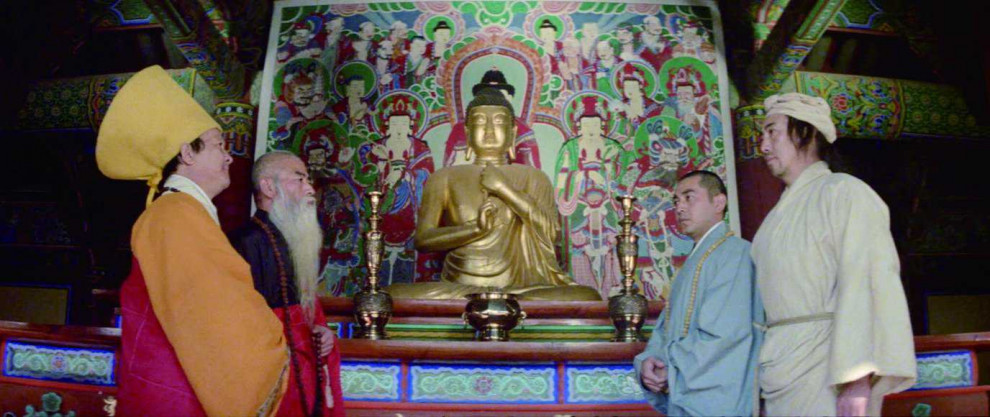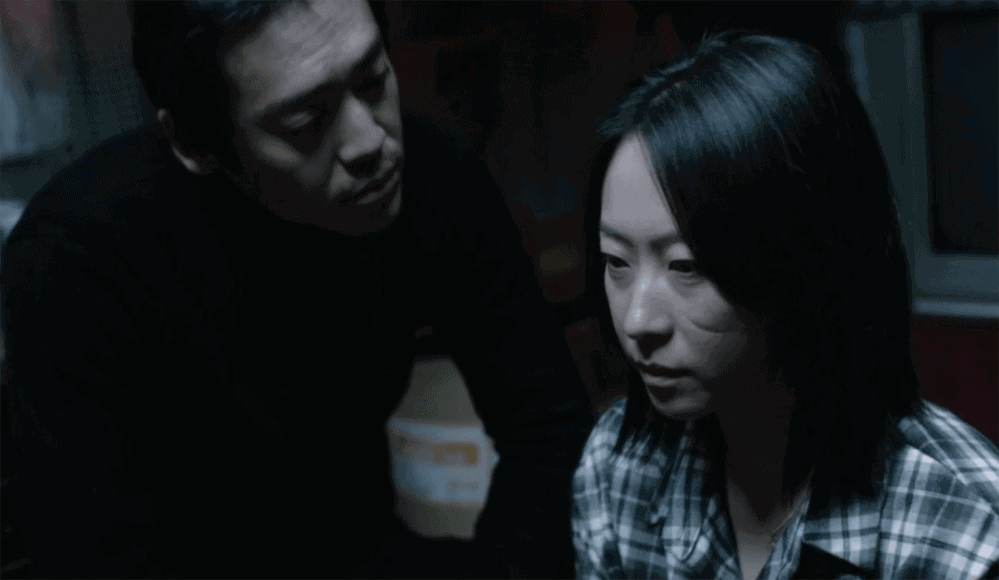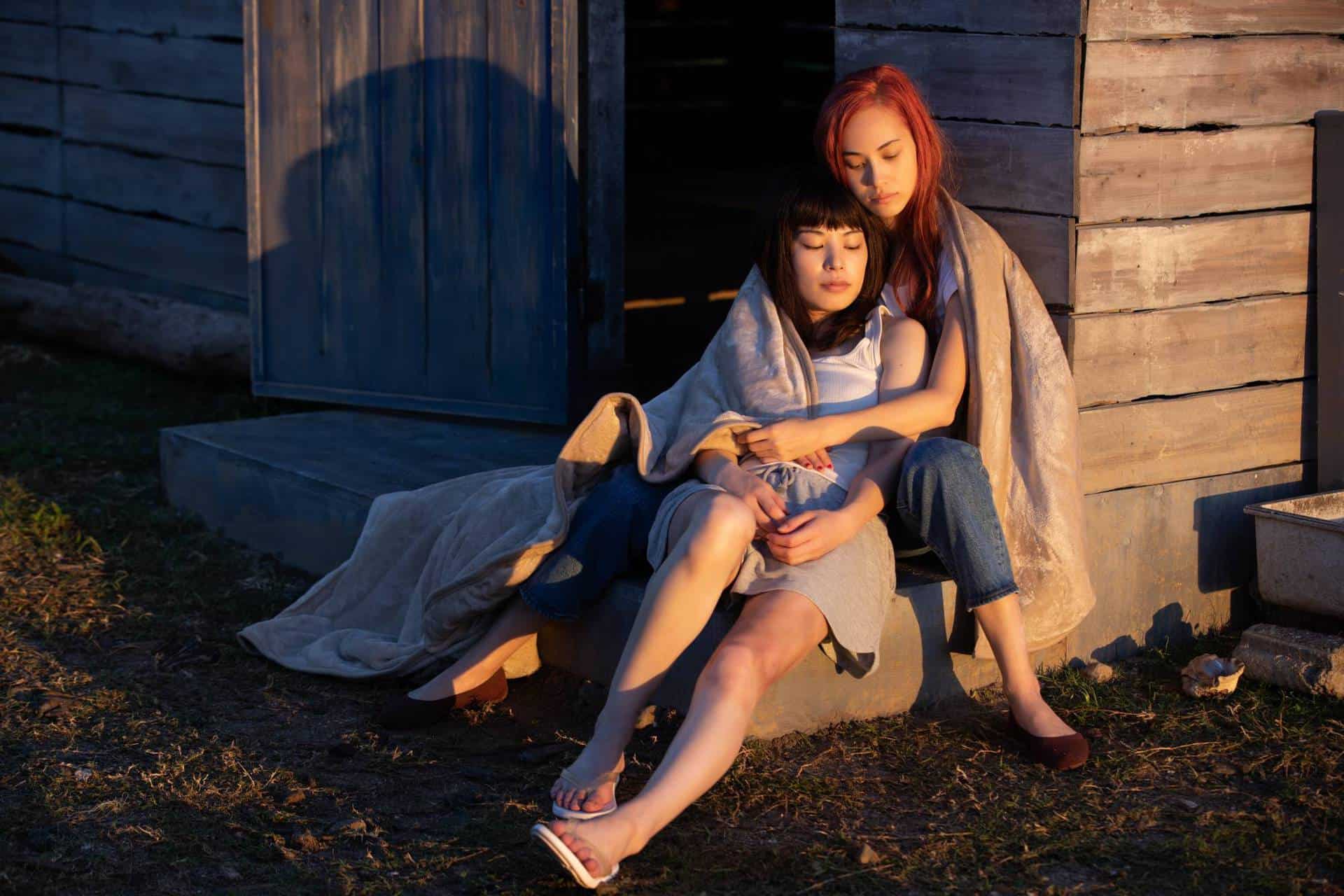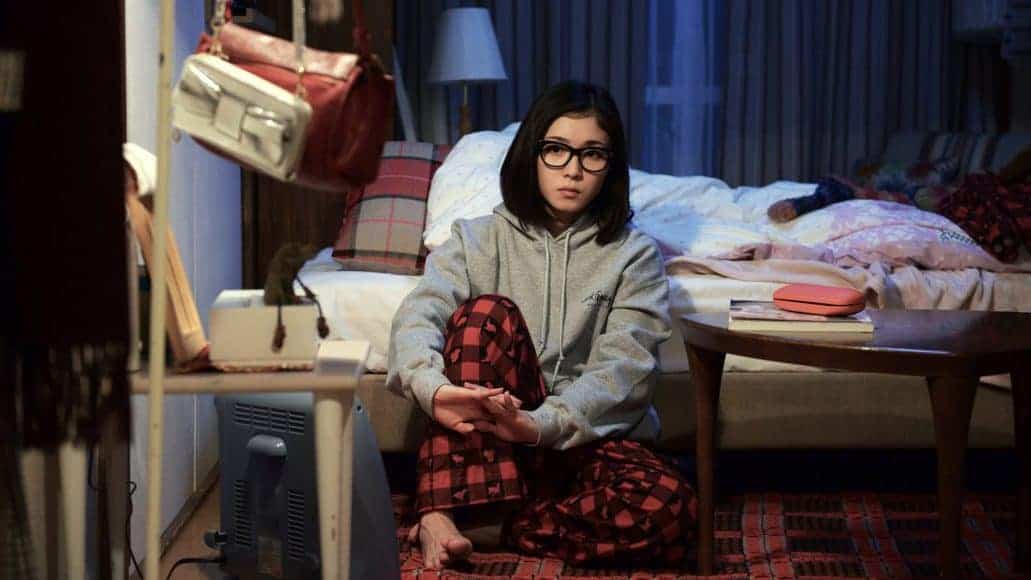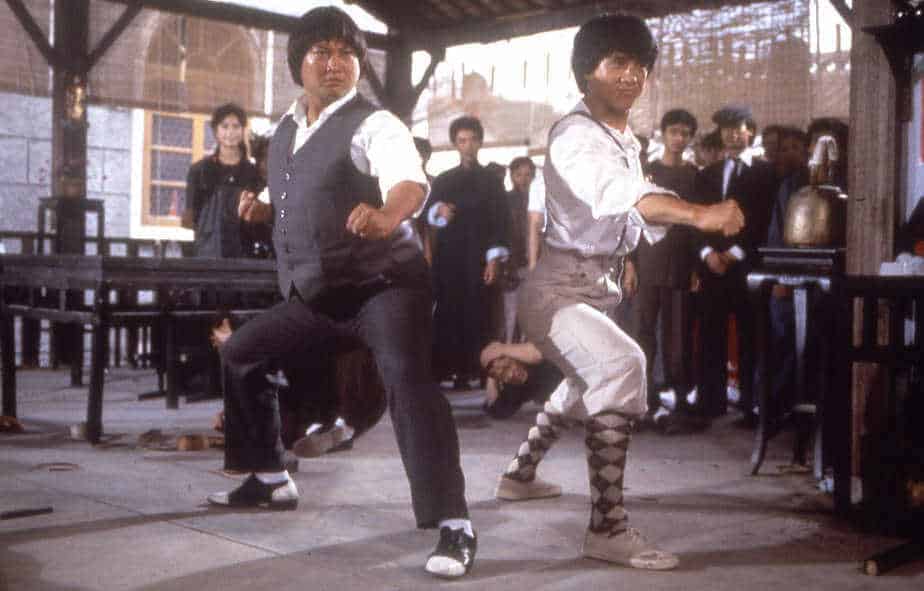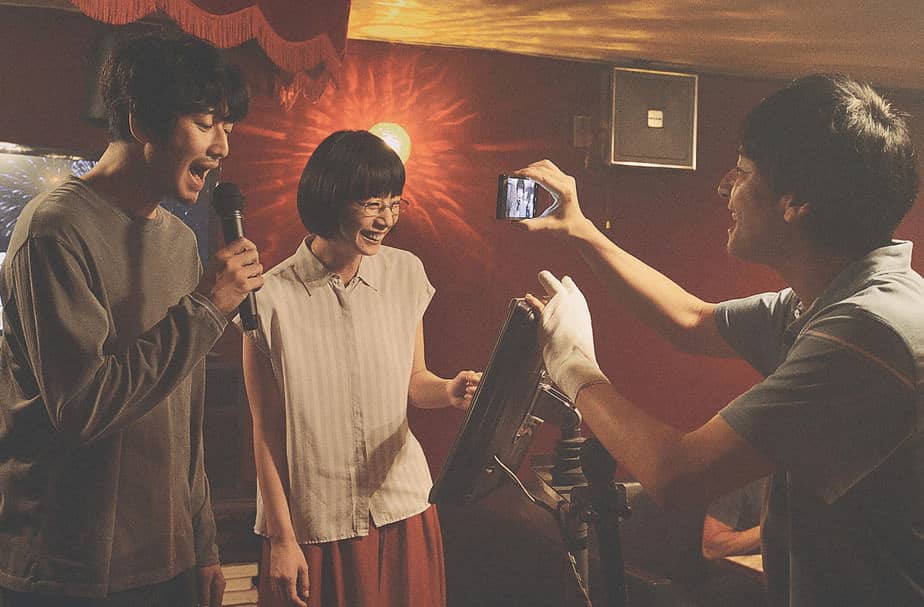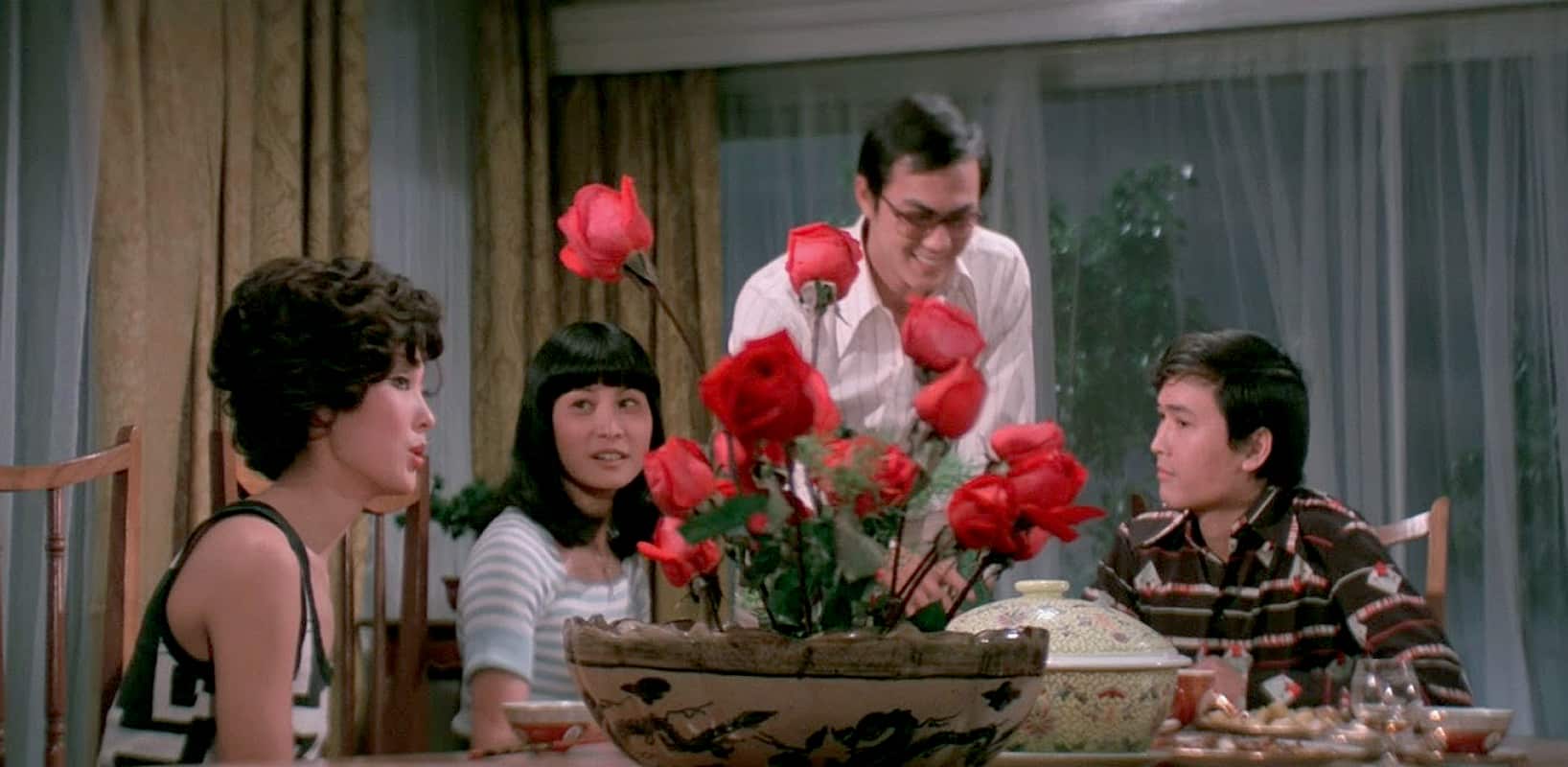King Hu's place in the history of world cinema as the man who reinvigorated and evolved the wuxia genre is well cemented, and “Raining in the Mountain”, which was selected as one of the Best 100 Chinese Motion Pictures by the Hong Kong Film Awards in 2005, is another testament to the fact.
Buy This Title
The story is set in a remote Buddhist Monastery during the 16th century, whose ageing Abbot is about to retire and announce his successor. The Abbot invites three outsiders to advise him on the matter, but all three of them have their own agendas. Esquire Wen, a wealthy patron of the monastery, has brought with him White Fox, a legendary thief who poses as his concubine and another sidekick, to help him steal the legendary scriptural text of “The Mahayana Sutra,” hand-copied by Tripitaka. General Wang, commander-in-chief of the local military has come along his fearsome Lieutenant Chang, and the two of them plan to stir the succession process towards someone they can control. Meanwhile, Wu Wai, a respected lay Buddhist master is surrounded by women and seems quite uninterested in what is going on in the temple. Just before the Abbot's decision, Chiu Ming, a convicted criminal, arrives at the monastery to atone as a monk. His presence complicates things even more.
“Raining in the Mountain” was shot in S. Korea, in the world famous Bulguksa temple, and the first thing the viewer will realize is that King Hu has made the most of this impressive location. From the house of scriptures, which is presented as a claustrophobic place filled with danger, to the big courtyard where the most impressive scene of the film takes place, to even the surrounding, bucolic area where the finale unfolds, all have been portrayed in the most artful but also meaningful fashion. Joe Chan Jun-Git's work in the cinematography has resulted in a visual extravaganza that benefits the overall aesthetics of the film the most, as is the case with the rather impressive coloring.
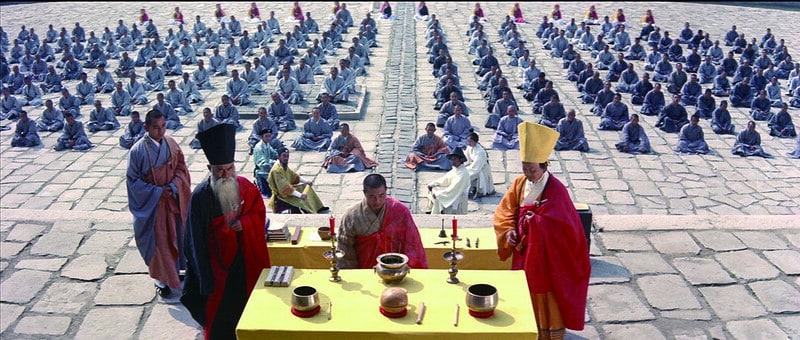
The artistry, as usually in King Hu's movies, also applies to the narrative. Hu takes his time to introduce the main characters and the intense machinations and power plays that dominate the script, weaving a rather intricate story, which is stressed even more by the appearance of the convict, who completely changes the power balance. The analysis of the characters and the actual situation have always been two of the key elements that make King Hu's movie stand out from the plethora of wuxia productions, and “Raining in the Mountain” offers one of the apogees in this skill. Furthermore, his usual, Buddhist motifs are here to be found once more, mostly represented by the convict and the Abbot, and adding more layers to the story.
The other element the film thrives upon is its rhythm, as implemented by the great editing of King Hu and Siu Nam and by the Chinese-opera influenced music of Wu Da-Jiang. The combination induces the film with a relatively fast pace that, additionally, makes the spectator think there is action, even when there is none. Furthermore, along with the excellent action choreography, the aforementioned combination makes the few but quite prolonged action scenes equally artful and impressive, with the ones in the woods being the most memorable.
The antithesis of all the aforementioned elements, the calmness of Buddhism, the monastery and the surroundings, the machinations of the protagonists, the violence that inevitably ensues and the fast rhythm, forms the basis of the narrative, and highlights Hu's extraordinary ability to combine all of them through his accomplished direction and overall control of the medium.
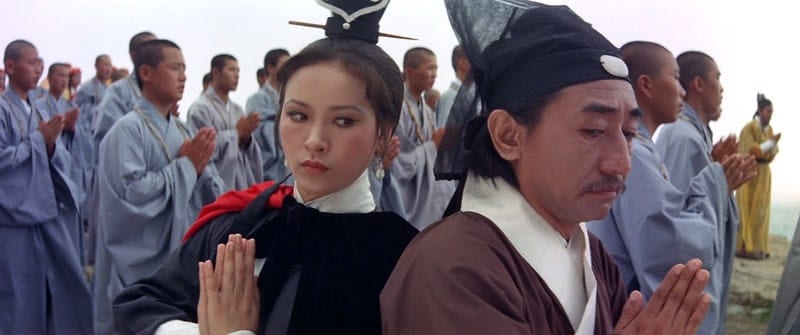
The acting is also on a very high level, with the cast following the usual theatricality rules of the genre, as presented by their sudden moves or change of visage, which is also stressed by the abrupt cuts that zoom in on their bodies or faces. Veterans Sun Yueh as Esquire Wen and Tien Feng as General Wang highlight their character's despicable nature in the most entertaining fashion. The ones who steal the show, though, are Hsu Feng as White Fox, the sole significant female part in the film, who portrays both her resolve and her inner struggle with the same artistry that Tung Lin presents the transformation of Chiu Ming, from a man filled with doubt and remorse, to a decisive leader.
“Raining in the Mountain” is one of the best films in King Hu's filmography, as it thrives both visually and contextually, while its duration (120 minutes approximately) also makes it one of his most approachable.


